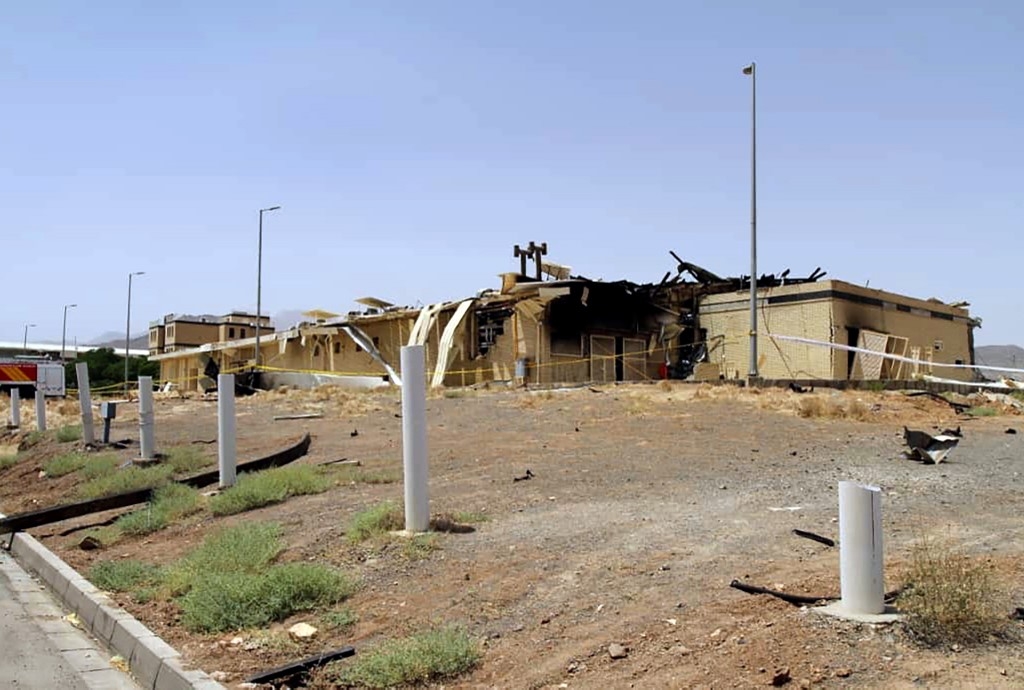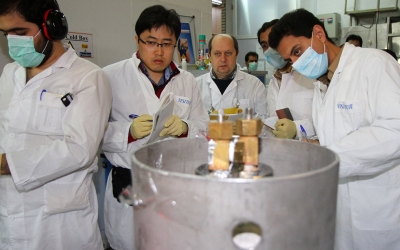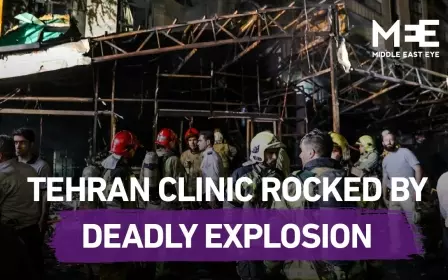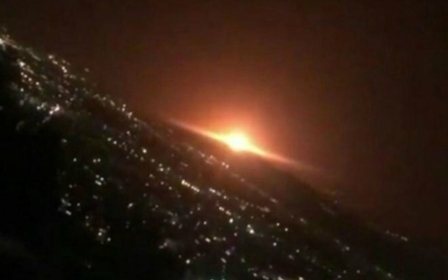Two dead, three injured in pre-dawn explosion at Iranian factory

Two people died and another three were injured in a pre-dawn explosion that rocked a factory south of Tehran on Tuesday, Iranian media reported, the latest in a string of fires and explosions, some of which have hit sensitive sites.
The blast in "a completely industrial zone" of Baqershahr, 23 kilometres from the capital, was caused by "workers being negligent whilst filling oxygen tanks", the town's governor was quoted as saying by Iran’s state news agency IRNA.
"The explosion... was so powerful that the walls of the Saipapress factory nearby were also totally destroyed," Amin Babai said, without giving details on the function of the factory.
The incident took place inside the Oxijen factory at 3:03am local time (22.33 GMT Monday), an emergency services spokesperson told AFP, adding that all the casualties were male and that two of those wounded had been admitted to the hospital.
Babai said that "firefighters had been on the scene" since shortly after the explosion and "prevented further fires and explosions”.
New MEE newsletter: Jerusalem Dispatch
Sign up to get the latest insights and analysis on Israel-Palestine, alongside Turkey Unpacked and other MEE newsletters
String of incidents
There have been several other incidents of explosions across the country recently.
On 26 June, an explosion occurred east of Tehran near the Parchin military and weapons development base that the authorities said was caused by a leak in a gas storage facility in an area outside the base.
Last Tuesday, 19 people were killed in an explosion at a medical clinic in the north of the capital Tehran. The fire service blamed a fire that had set light to gas canisters.
On Thursday, the Atomic Energy Organization of Iran (AEoI) reported that an "incident" had occurred at Natanz, a mostly underground uranium-enrichment site some 250 kilometres south of Tehran, which is one of several Iranian facilities monitored by inspectors from the International Atomic Energy Agency (IAEA), the UN nuclear watchdog.
The IAEA said the location of the fire did not contain nuclear materials and that none of its inspectors was present at the time.
Iran's top security body said that the cause of the incident at the Natanz nuclear site had been determined, but "due to security considerations," it would be announced at a convenient time.
Two more incidents were reported on Saturday, including a fire that broke out at a power station in Natanz, a city in the country's southwest, and a chlorine gas leak that occurred at a unit of the Karoon petrochemical plant near the port of Bandar Imam Khomeini on the Gulf, injuring dozens.
On Tuesday, AEoI issued a statement dismissing reports of "an alleged explosion taking place in Shahid Rezaei Nejad nuclear complex in Yazd [province]", according to IRNA.
The organisation said "no explosion has taken place in the complex", adding that satellite images circulating on social media are not of the Shahid Rezaei nuclear site.
Israel involvement?
A Middle Eastern intelligence official with knowledge of the Nantanz incident told The New York Times that Israel was responsible for the attack on the nuclear complex using a powerful bomb.
Israel has worked to disrupt Iran's nuclear programme in the past, including the Stuxnet cyberattack in 2010 that targeted Iran's nuclear centrifuges and was blamed on Israel and the US.
A member of Iran's powerful Islamic Revolutionary Guard Corps told the Times that authorities had ruled out the possibility of a cyberattack, while the country's Civil Defence Organisation said authorities were looking at possible sabotage following recent blasts at several key Iranian sites.
Following the Nantanz incident, when asked about recent incidents reported at strategic Iranian sites, Israeli Prime Minister Benjamin Netanyahu told reporters: "Clearly we can't get into that."
The Israeli military and Netanyahu's office, which oversees Israel's foreign intelligence service Mossad, did not immediately respond to media queries on Friday.
Middle East Eye delivers independent and unrivalled coverage and analysis of the Middle East, North Africa and beyond. To learn more about republishing this content and the associated fees, please fill out this form. More about MEE can be found here.





